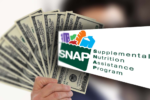The news of a supposed $16,800 payment from the U.S. government in December 2024 has been spreading rapidly across social media, sparking hope and excitement for many people. This kind of buzz often grabs attention, especially when financial relief is in high demand. However, before you get your hopes up, it’s important to take a closer look at the facts behind this claim. Is the U.S. government really making such a payment, or is it just another scam?
In this article, we’ll dive into the truth behind the $16,800 payment claim, explain how to spot scams, and highlight legitimate government programs that offer real financial assistance. We’ll also provide tips on how to protect yourself from fraud and keep you informed about trustworthy sources for financial aid information.
What’s the Truth About the $16,800 Payment?
Claim: A $16,800 government payment in December 2024.
Fact Check: No credible evidence supports this claim. It is most likely misinformation or a scam.
Despite the appealing nature of this claim, there is no official backing for the $16,800 payment. While it sounds promising, a closer inspection reveals that this is just another example of fraudsters trying to exploit people’s financial worries.
The most common way such rumors spread is through social media, viral posts, and misleading emails. These scams are designed to mislead individuals, often in an attempt to steal personal information or money.
How Did the $16,800 Rumor Spread?
This specific claim seems to have originated from viral posts and chain emails. Fraudsters often use these methods to spread misinformation quickly, taking advantage of people’s hopes for financial relief. Once a rumor like this gains traction, it’s important to remember that government payments of this magnitude are not typically announced through social media or unsolicited messages.
Past Examples of Similar Scams
This is not the first time the public has been misled about government payments. During the COVID-19 pandemic, scams regarding “stimulus bonuses” or “unclaimed relief payments” were widespread. These schemes targeted vulnerable individuals, including the elderly and low-income families, leading to identity theft and financial loss.
How to Spot and Avoid Scams
In today’s world, scams are becoming increasingly sophisticated. Here are some practical tips to help you avoid falling for such frauds:
- Verify the Source
- Always check the information on official websites like USA.gov, IRS.gov, or other verified government sites.
- Be cautious of websites with URLs that look similar to official sites but have minor spelling mistakes or unusual domain extensions.
- Be Skeptical of Unsolicited Offers
- Legitimate government agencies do not contact individuals out of the blue offering money.
- Any message urging you to “act quickly” or “claim your payment now” should raise a red flag.
- Avoid Sharing Personal Information
- Never share sensitive personal details like your Social Security number, bank account information, or passwords with unknown sources.
- Government agencies never ask for such information via phone calls or emails.
- Report Suspicious Activity
- If you suspect that you’ve encountered a scam, report it immediately to the Federal Trade Commission (FTC) at ReportFraud.ftc.gov or contact local law enforcement.
Legitimate Government Assistance Programs
Although the $16,800 claim is false, the U.S. government offers a range of real programs to provide financial support. Here are some legitimate assistance programs:
- Supplemental Nutrition Assistance Program (SNAP)
- SNAP offers financial aid to low-income families to help with food expenses.
- Eligibility is based on income and household size. You can apply by visiting your local SNAP office or starting the application process online.
- Temporary Assistance for Needy Families (TANF)
- TANF provides short-term financial assistance to families with children, helping them meet their basic needs.
- Eligibility is determined by income and state guidelines. More details are available through state websites.
- Social Security and Disability Benefits
- Social Security provides benefits to retirees, disabled individuals, and eligible family members.
- These benefits are based on your work history, age, or disability status. Visit the Social Security Administration website for more information.
- Federal Student Loan Forgiveness
- If you’re struggling with student loans, the U.S. Department of Education offers forgiveness programs like Public Service Loan Forgiveness (PSLF) and Income-Driven Repayment Plans. Check your eligibility by visiting Federal Student Aid.
- Housing and Utility Assistance
- Programs like the Emergency Rental Assistance Program (ERAP) can help individuals who are facing difficulty paying rent or utilities.
How to Stay Informed and Avoid Misinformation
To avoid falling for scams and misinformation, it’s important to rely on trustworthy sources for government information. Here are some tips:
- Use Trusted Sources
- Always visit official government websites, such as USA.gov, WhiteHouse.gov, or IRS.gov, to get accurate and verified information.
- Sign Up for Alerts
- Many government agencies offer email alerts or newsletters. By subscribing to these, you can receive updates about new programs, deadlines, and other important news.
- Educate Your Network
- Scams thrive on ignorance. Share accurate and updated information with friends and family members, especially those who may be less familiar with how to spot fraud.
Frequently Asked Questions (FAQs)
1. Is the $16,800 government payment real?
No, there is no evidence to support this claim. It is likely a scam.
2. How can I verify a government program?
You can verify a program’s legitimacy by checking official government websites like USA.gov or IRS.gov.
3. What are the most common scam tactics?
Scammers often use urgent language, fake government logos, or ask for upfront fees to “process payments.” Be cautious of unsolicited phone calls or emails.
4. Are there legitimate government financial aid programs?
Yes, there are several legitimate programs, including SNAP, TANF, and Social Security. You can apply for these programs by meeting specific eligibility requirements.
5. How do I report a scam?
You can report scams to the Federal Trade Commission (FTC) at ReportFraud.ftc.gov or contact local law enforcement.








